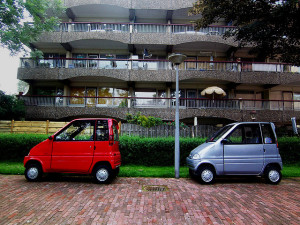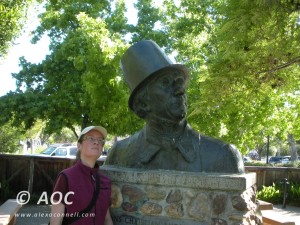Sometimes, my work space looks like this:
The space is like a notepad version of “Where’s Waldo.” Find the stationery with the story brainstorming list on it. Go ahead, take your time.
I call what you see here “creative chaos.”
What you can’t see in the picture is a lot of the floor. The floor gets very creative. At the epicenter of the creativity you can usually find my chair, unless it’s been a breezy day.
Merriam-Webster defines a “euphemism” as follows: “the substitution of an agreeable or inoffensive expression for one that may offend or suggest something unpleasant; also: the expression so substituted.” The word comes from the Greek euphēmismos, basically, speech that sounds good.
Another (accurate) description of my work space is, sometimes: an unholy mess. But that doesn’t sound nearly as nice as creative chaos. A good friend of mine used to joke about her messy room by plucking a desired item from an otherwise indistinguishable heap on the first try and announcing: “there’s a method to my madness.” I like that. The statement suggests intent. A plan. Decision-making.
As a writer, I like “creative chaos” for additional reasons. The phrase conveys dashes of artistry, productivity, and a possible relationship to cosmological Big Bang ideas. All very nice, indeed. My creative chaos underlines the fact that I am very busy and important (thanks, Bridget Jones).
Euphemisms are great. Politicians and corporations use them a lot. My favorite corporate-related euphemism comes up all the time in the avaricious consumerist holiday season replacing Christmas every year. If you turn on the radio or your TV, or the YouTube video you are trying to watch gets hijacked by some ad, you’ll hear a version of this doublespeak. It goes something like this:
“Do you like to SAVE? Shop XYZ Company this holiday season!”
No one has yet clarified for me how purchasing something involves simultaneously saving my money. But maybe that’s why I’ve never had more than one credit card.
Job descriptions are great for euphemisms, too. Here are a few, along with their real-world translations, that make the rounds occasionally in an email forward (one of my former co-workers had the full list pegged to the corkboard above her desk; I love people with a sense of humor):
- Competitive salary
“We remain competitive by paying less than our competitors.” - Must be deadline oriented
“You’ll be six months behind schedule on your first day.” - Must have an eye for detail
“We have no quality control.” - Seeking candidates with a wide variety of experience
“You’ll need it to replace three people who just left.”
I don’t know about you, but I’d rather be recognized for my broad range of experience and ability to meet deadlines, than tasked with balancing a row of spinning plates while not earning much money.
The same kind of language manipulation happens a lot in the food space. “All natural” is one of my favorites. What does “all natural” mean? If you ask a flavor scientist, you might conclude that their answer has no bearing on your question.
I could write a lot about the ways we parlay language like a shield — which is kind of the point. Euphemisms are great. Not just for job interviews and food marketing, but also for Jane Austen and George Eliot. (What is the society in Pride & Prejudice if not one giant euphemism pond? Mr. Bennett: “I have not the pleasure of understanding you.” One sentence encompasses conflict, character motivation — and humor).
Euphēmismos — the tension between what’s said and what’s really meant. Which is the place that a lot of good stories and jokes come from.
Therefore, I deduce that I have some great stories coming out of this writing work space. If I can locate them in the pile of papers.
==
Is there a method to your madness? Let’s hear some of your favorite turns of phrase below.



